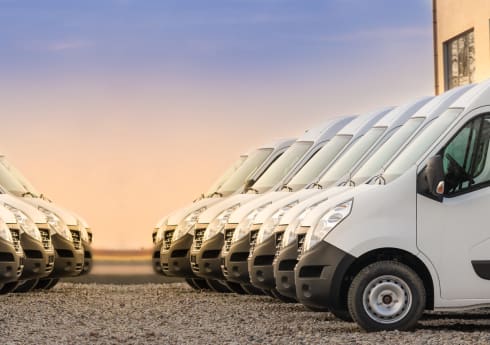Company Car Fuel Benefit
Company cars are a perk offered by many employers. Some even provide a further benefit by giving you a personal fuel allowance – but this isn’t just free fuel for you to use. This is because the UK government believes this allowance to be a taxable benefit and they reclaim it via the company car fuel benefit.
We explain exactly what the company car fuel benefit is, how it’s calculated and offer advice that will help you to decide whether it’s really a benefit for you.

A quick explanation of what the company car fuel benefit is
While you might think the company car fuel benefit is simply one of the perks of working for an organisation, there’s a little more to it than that – and the important thing to know is that it’s a tax you have to pay to HMRC.
Company car fuel benefit is a tax that you have to pay if you’ve been given a car by the business you work for and are also given fuel to use in your own time – for example, your business may use fleet management fuel cards and give you a personal fuel allowance with yours.
Having fuel cards can save your business money, do your driver fuel expenses claims automatically and make it a 30-second job to reclaim your fuel VAT. As a free comparison site, iCompario can find you offers on cards from all the big oil companies or multi-brand cards, and deals with no minimum purchase or tie-in contracts.
Why do I have to pay the company car fuel benefit?
Company car fuel benefit is a tax. HMRC charges this tax because it considers that you’ve been given free fuel – and, let’s be honest, you have because your company has paid for fuel that you are using in personal hours.
What this means is that if your employer doesn’t subsidise your company car fuel benefit then you’ll need to pay it yourself.
The question is how much you have to pay. The answer is that it’s a unique calculation (similar to HRMC bills), which is made based on the vehicles benefit in kind (BIK).
How is the company car fuel benefit calculated?
Company car fuel benefit is the tax you pay to HMRC on the free (for personal use) fuel you get from your employer.
Like all HRMC taxes, there is a calculation that is used to work out the company car fuel benefit. This means you need to know your vehicle’s BIK.
Your car’s BIK is worked out like this:
Your car’s CO2 emissions x the fuel benefit charge x your income tax bracket.

What is the fuel benefit charge & why does it matter to me?
Fuel benefit charge is one of the figures used to calculate company car fuel benefit. It’s a cash sum that’s set by HMRC and that can (and often does) change every financial/tax year.
The figure for 2019/20 is £24,100, but this has increased at an inconsistent rate since being introduced in the 2003/04 tax year – the table below shows the different fuel benefit charge amounts since its introduction:
| Tax year | Fuel benefit charge |
| 2019/20 | £24,100 |
| 2018/19 | £23,400 |
| 2017/18 | £22,600 |
| 2016/17 | £22,200 |
| 2015/16 | £22,100 |
| 2014/15 | £21,700 |
| 2013/14 | £21,100 |
| 2012/13 | £20,200 |
| 2011/12 | £18,800 |
| 2010/11 | £18,000 |
| 2008/09 – 2009/10 | £16,900 |
| 2003/04 – 2007/08 | £14,400 |
The fuel benefit charge matters to you if you benefit from your employer using fuel cards. This is because the UK government considers this to be free fuel and levies a tax to reclaim the money you’ve saved on your personal fuel – this tax being the company car fuel benefit.
If you benefit from getting personal fuel from a company car then it’s important to be aware of how much the fuel benefit charge is. This is because it tells you whether it’s worth you taking the company car fuel benefit.
Example of how the company car fuel benefit tax calculator works
Here’s an example of how the company car fuel benefit tax could look for you:
Say you drive a petrol car with emissions of 100-104 CO2 (g/km). This means your BIK rate is 24%.
The fuel benefit charge for 2019/20 is £24,100 so you then multiply this number by 24%, giving you a figure of £5,784.
To get the amount of tax you pay, you then multiply this number by your tax bracket. So, say your tax bracket is 20%, you multiply £5,784 which means you’d pay £1,156.80 for the company car fuel benefit tax.
So, in this example, if you spend less than £1,156.80 a year on fuel then it doesn’t make sense for you to get personal fuel from the company car fuel benefit.
Having fuel cards can save your business money, do your driver fuel expenses claims automatically and make it a 30-second job to reclaim your fuel VAT. As a free comparison site, iCompario can find you offers on cards from all the big oil companies or multi-brand cards, and deals with no minimum purchase or tie-in contracts.



